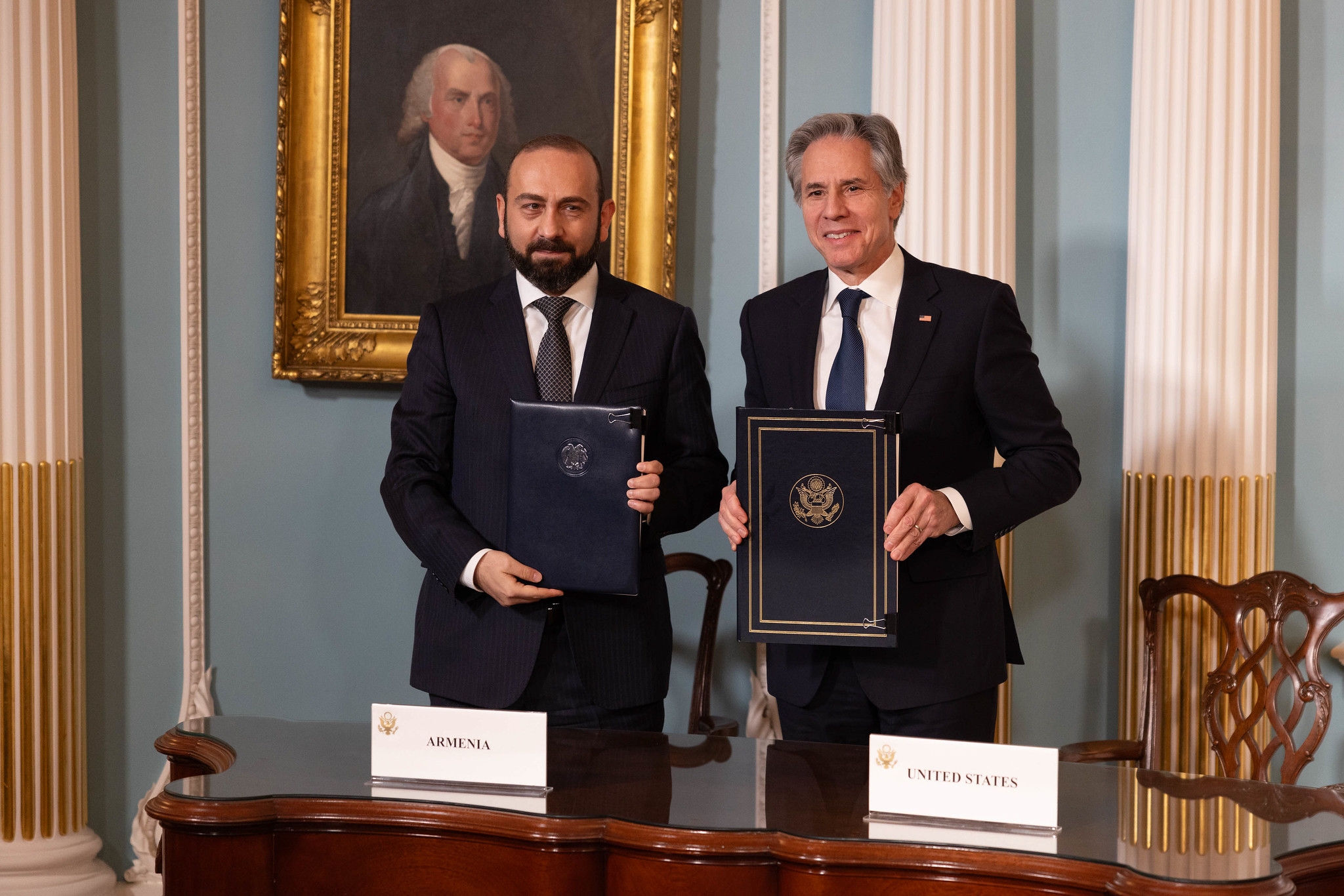January 2025 may be remembered as a pivotal moment in Armenia’s geopolitical landscape, marking a decisive shift away from its longtime protector, Russia, and towards integration with Western institutions. This move has the potential to alter the strategic balance in the Caucasus.
In recent days, Armenian officials have taken significant steps to formalize the country’s improving relationship with the United States and the European Union. On January 14, US and Armenian diplomats signed a strategic partnership agreement, paving the way for stronger trade, strategic, and political ties between the two nations.
Just days earlier, the Armenian government finalized legislation to qualify the country for European Union membership. Prime Minister Nikol Pashinyan stated that the EU Integration Act, adopted on January 9, would mark a turning point in the country’s history. However, he cautioned that the EU accession process would be arduous, requiring consistent political will and popular support.
“Adopting the law doesn’t literally mean Armenia is joining the EU because that cannot be done through a law or government decision; a decision on that [accession] can only be made through a referendum,” the prime minister explained.
On January 13, Pashinyan had a phone conversation with European Council President António Costa, focusing on the Armenian-Azerbaijani peace process. Efforts to reach a durable settlement to the decades-old conflict recently hit a snag when Baku revived a demand for extraterritorial rights for a land connection between Azerbaijan and its Nakhchivan exclave.
In comments posted on social media, Costa expressed the EU’s commitment to further strengthening its partnership with Armenia based on common values and deepening cooperation across all sectors, including security, the economy, people-to-people contacts, democratic institutions, and resilience.
Armenia’s efforts to tighten ties with the EU and the United States stem from a souring of relations with Russia. Many Armenians felt betrayed by the Kremlin for not fulfilling security guarantees during the final stages of the Second Karabakh War, which ended with Azerbaijan’s reconquest of the contested territory in late 2023.
For most of the post-Soviet era, Armenia relied heavily on Russia for economic and strategic support. Traditionally, Armenia was considered firmly within Moscow’s orbit as part of the Eurasian Economic Union (EAEU) and the Collective Security Treaty Organization (CSTO). However, following a decisive defeat in Karabakh, Pashinyan’s government has reconsidered the value of the country’s relations with Russia.
The Kremlin has reacted to Armenia’s moves with a mix of vexation and nonchalance. Kremlin spokesman Dmitry Peskov stated on January 14 that Russia still considers Armenia a close partner while disparaging the United States as a troublemaker bent on stirring up conflict in the Caucasus.
“The United States, of course, is trying in every possible way to drag down new countries,” Peskov said at a press briefing, adding that Washington has “never played a particularly stabilizing role in the South Caucasus.”
Foreign Minister Sergei Lavrov adopted a more measured tone, characterizing the Armenian-US strategic partnership as the “sovereign decision of two states.” He emphasized that such agreements do not oblige “one or another participant to oppose a third country.”
One immediate question arising from Armenia’s EU Integration Act is the country’s future in the Moscow-dominated EAEU. Armenian officials, while suspending the country’s membership in the CSTO, have said they have no plans to leave the EAEU.
Russian officials, meanwhile, have emphatically stated that Yerevan cannot enjoy the best of both economic worlds.
“The EAEU and the EU are incompatible. Both unions imply the absence of customs borders and the free movement of goods, services, capital, and labor,” Russian Deputy Prime Minister Alexei Overshuk stated shortly after Armenia’s approval of the EU Integration Act. “Membership in the EAEU is a privilege, while membership in the EU is comparable to buying a ticket on the Titanic due to the economic and social problems in the bloc.”
Overshuk predicted that Armenians would face drastically higher costs for consumer goods and energy if the country left the EAEU.
To a certain extent, the EU Integration Act marks the end of the beginning for Yerevan in its efforts to gain full membership. Beyond the formidable domestic reform challenges of aligning Armenian legislation with EU standards, the country must make peace with Azerbaijan. The prospects of a peace deal now seem more distant than a few months ago, but the process has proven prone to sudden shifts. For example, if existing tension lingers between Azerbaijan and Russia over the Kremlin’s failure to admit responsibility for the crash of an Azerbaijani airliner accidentally shot down by air defense forces in Chechnya, Baku might be inclined to soften its negotiating positions vis-à-vis Armenia.
Meanwhile, the return of Donald Trump to the White House later in January raises questions about the future US-Armenian partnership. Many Armenians are hopeful that Trump’s return will accelerate efforts to expand bilateral relations, citing comments made by the president-elect prior to the November elections that he would “protect persecuted Christians.” At the same time, political observers expect that the Trump administration’s foreign policy will not prioritize the South Caucasus.


Leave a Reply